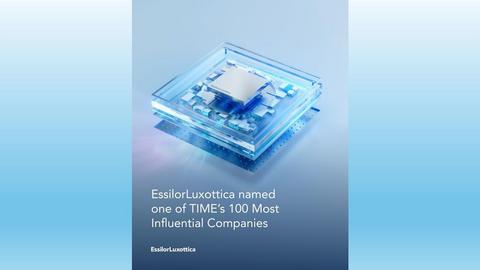Publications
FOCUS 73: Making A Connected World More Secure

Herve Jarry, Chief Technical Officer, VP Technical Thales Solutions Asia Pte Ltd discusses the importance of transparency in AI systems
Can you give us an overview of Thales’ Artificial Intelligence policy, software and applications?
Artificial Intelligence is one of the key technologies in Thales, with related activities ranging from basic research to applications into the products and solutions delivered to our customers.
The Thales Group has a large Research & Development (R&D) and Innovation baseline and culture: over 25,000 researchers, technicians and engineers are involved in R&D out of over 80,000 employees in total in the Group. With a portfolio of over 16,500 patents, Thales has been ranked in 2020 for the seventh time in the Derwent “Top 100 Global Innovators”.
In addition to IA, Thales is investing massively on other key digital technologies such as Big Data, Cybersecurity or Connectivity/Internet of Things. The Group has spent 7 billion Euros in digital technologies since 2014, including the acquisition of Gemalto, which makes us a leader in digital identity and security. In Singapore, the acquisition of Gemalto tripled our headcount and extended our R&D footprint with the addition of over 350 engineers to our other R&D activities (TRT- Thales Research & Technology Lab, Digital Factory, Transportation & Security…).
AI is becoming more and more mainstream in our everyday life; for instance, when you select a tune or a series proposed by your favourite streaming service provider, the selection is generated by AI algorithms. Still, when it comes to critical systems and services in industries such as healthcare, justice, transportation or defence and when safety is at stake, AI cannot be just a commodity.
As Thales customers operate in these critical environments, in our domains of activities (Aerospace, Space, Transportation, Digital Identity, Defence and Security), they must have trust in the solutions we deliver. Hence, Thales approach to AI, TrUE AI, standing for “Transparent, Understandable and Ethical AI” and at the heart of the products and solutions that we develop.
Thales has recently expanded its technology partner ecosystem to accelerate digital transformation initiatives. What are some applications currently deployed in Singapore?
To accelerate the digital transformation of both our products and solutions, Thales first set up a Digital Factory in Paris three years ago in July 2017. The Digital Factory expanded to include locations in Montreal (April 2018) and in Singapore (November 2018).
The Digital Factory has deeply changed our ways of working, with much more Agile development of products, enabling us to bring to the market digital products developed in months, with a high level of security, yet also fully operational thru DevOps practices. Software developers are also much more connected to the market and in-tune with pains and gains of end users of products
Singapore Digital Factory will soon celebrate its second year of operation and has already developed several Minimum Viable Products (MVPs) for Thales applications, for instance in the domain of urban transportation.
Amongst other digital transformation initiatives in Singapore, we run advanced R&D on AI algorithms for sensors in TRT Lab and we have recently set up a joint Lab with the Civil Aviation Authority of Singapore (CAAS) on Aviation innovation.
What are Thales’ ethical policies in AI? How does Thales ensure it creates transparency in AI decision-making?
Let me elaborate on our TrUE AI policy, which indeed addresses the issues on ethics and transparency when we talk about AI.
Ethical for us means that the decisions made using AI must be in accordance with independent, objective standards and protocols, observing laws and human rights. While AI advises and assists, a human operator always has control and always makes the final decision.
For an AI system to be transparent, we must be able to trace the data which has been used and how it has been processed, and users must be able to detect and understand the reasoning behind a decision and, where necessary, ‘formally prove’ the decision. This is of utmost importance in critical systems such as aircraft avionics or air traffic management systems. If the movie selected by the AI algorithm of your streaming provider does not please you, then you can just choose another one. If the decision proposed by AI to a pilot or a controller is not the right one, consequences can be much more severe.
This is the reason why we are developing a global approach for AI in several applications, combining in particular the two main branches of AI into a Hybrid AI:
Symbolic AI, which reproduces cognitive functions such as reasoning, understanding and decision-making;
Statistical AI, including neural networks, which can reproduce perceptive functions such as vision or hearing, with very often spectacular performances, but also limited sense making.
In conclusion, AI is not just about digital technologies and in Thales we believe that for AI to scale up in virtually all domains, we’ll need to master meaningful interactions between humans and machines and reach trust in AI.
Interview with Herve Jarry, Chief Technical Officer, VP Technical Thales Solutions Asia Pte Ltd, for FOCUS #73. To read more articles from this issue, download your digital copy here


